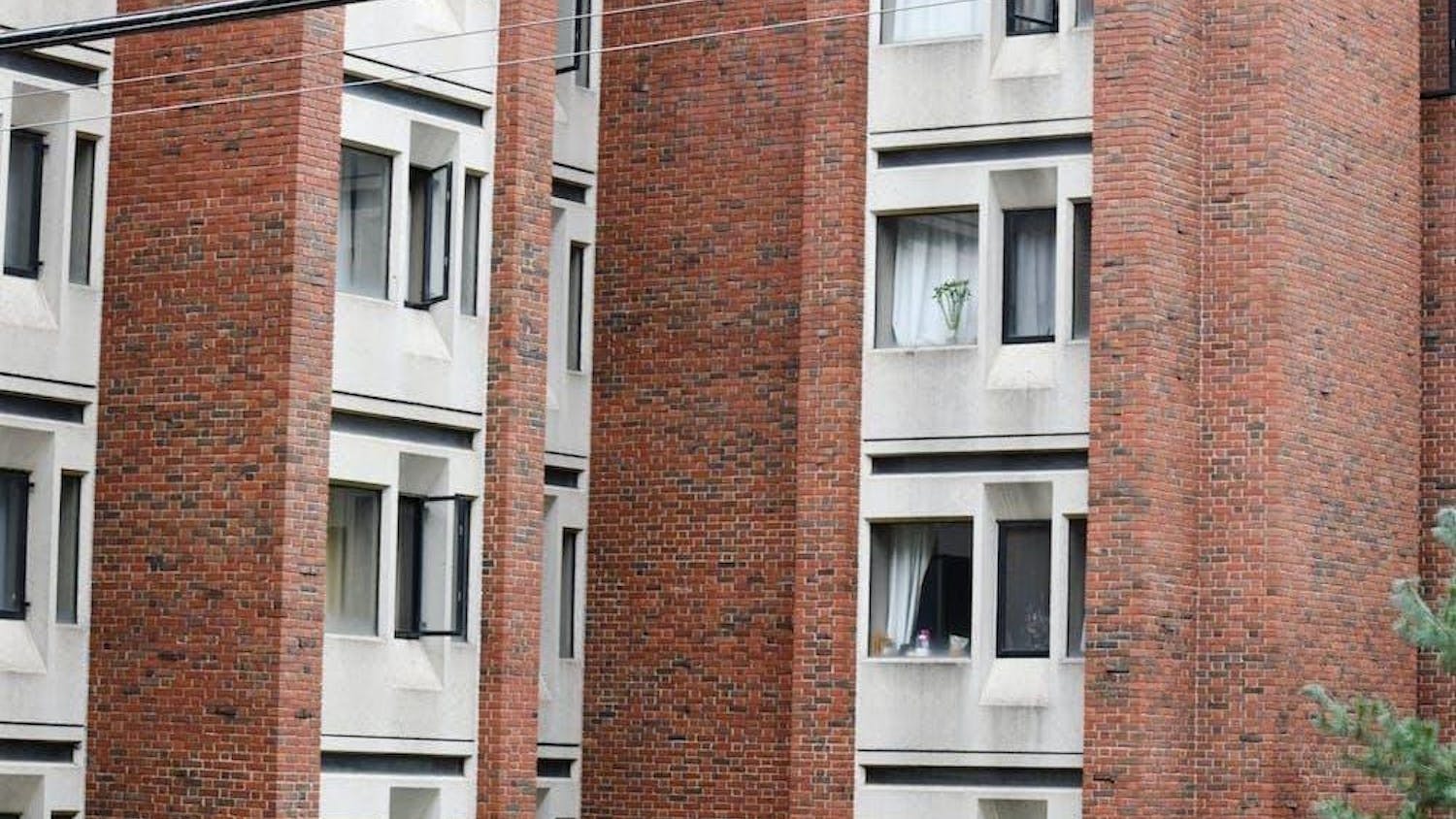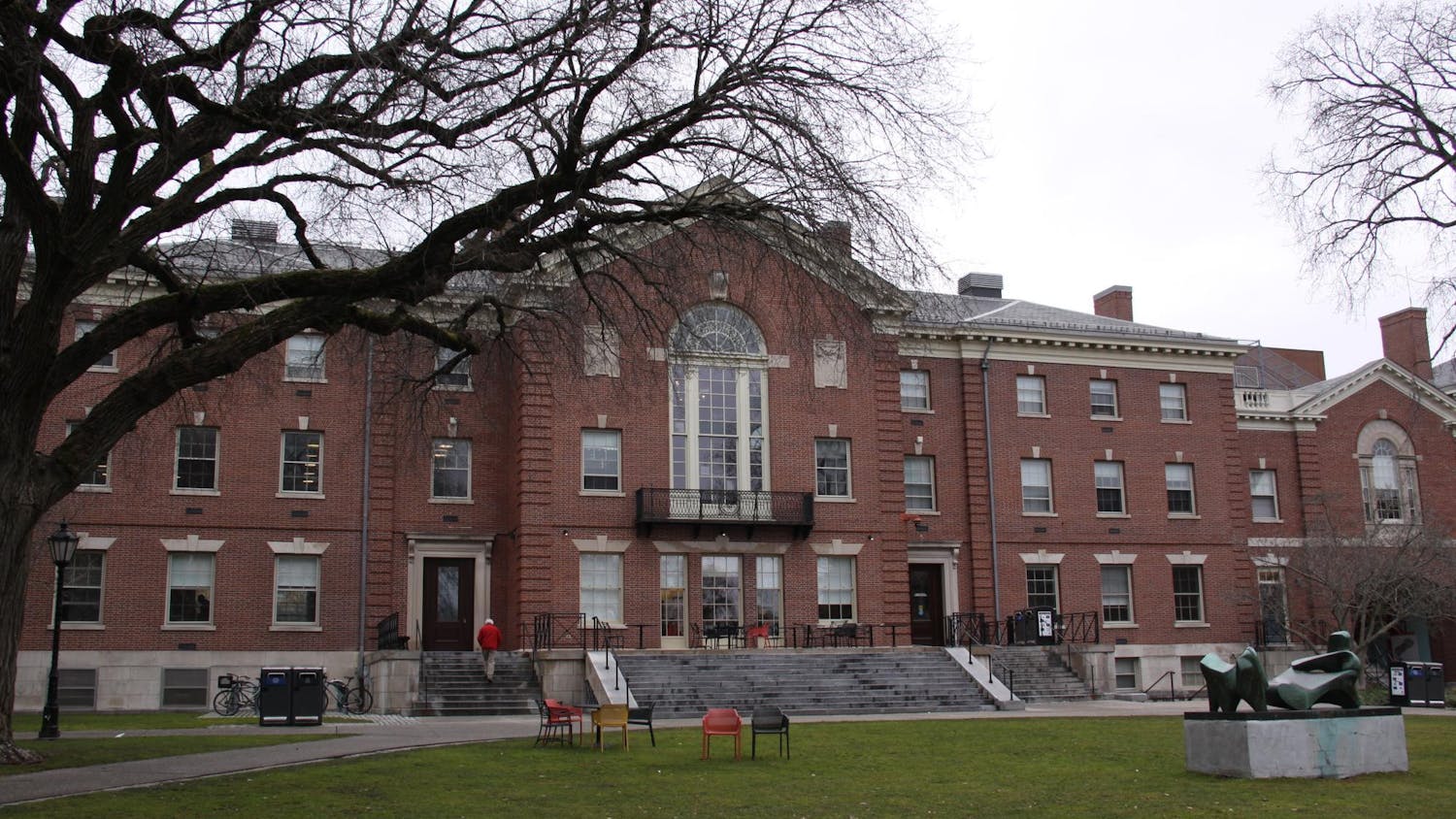South Asian Identity Week's opening convocation featured a presentation by two scholars on Afghanistan who discussed what is necessary to understand and empower Afghan women.
Jennifer Heath, an Islam scholar, curator and artist, and Ashraf Zahedi, a feminist researcher and social justice activist from the University of California at Berkeley, talked Sunday to an audience of about 70 in Salomon 001. Heath is also involved in an Afghan hunger relief effort, and both women are collaborating on an anthology about Afghan women in a post-9/11 world.
After providing a historical background of U.S. involvement in Afghanistan, Heath focused her talk on how to counter "naive projections" onto Afghan culture.
"The fetishizing and imposition of a one-size-fits-all Western-style democracy, Western ideals and ideas are not necessarily appropriate for tribal, dynastic societies and have more often than not resulted in backlash," Heath said.
Heath said that pictures in the New York Times and Time magazine, one of which shows an Afghan woman whose nose has been cut off, do not reflect "the norm" in Afghanistan. She advocated looking at underlying causes rather than highlighting horrific incidents.
Arguing against other stereotypes, Heath said not all Afghan men are fundamentalists or wife-beaters. Some Afghan men are in the Taliban not because they agree with the group's ideals, she said, but rather because there are not enough paying jobs elsewhere.
Heath added that Afghan women are often misconstrued as lacking agency, citing the depiction of the burqa as an example.
Heath said that rather than sending in military forces, a "new and progressive" force of people who could work directly with Afghans would be more productive. She added that any lasting peace agreement would need to focus on women's rights.
In her speech, Zahedi agreed with Heath's ideas about striving to fully understand Afghanistan's culture. She said that working within the framework of Afghan culture would be crucial to achieve gender equality.
"Right now, we have to value what they value at this point," Zahedi said.
In strategizing about Afghanistan, Zahedi said, it is necessary to understand why Afghans might seem opposed to certain ideas. For instance, she said, women often refuse medical help because they are not comfortable with male doctors, not because they are opposed to aid. A family that doesn't send its child to school might be concerned for the child's safety and is not necessarily opposed to education, she said.
To achieve gender equality, Zahedi argued, it would be necessary not only to provide women with an internal source of power, but also to complement it with social and legal empowerment.
"Addressing practical needs of women is more important at this point than this grand, external idea," Zahedi said.
Both Heath and Zahedi said it would be a mistake to ignore males and that educating boys and gaining support from men would be essential in achieving gender equality in Afghanistan.
The speeches were followed by a question-and-answer session as well as a dinner with the speakers at the Sarah Doyle Women's Center.
The committee behind South Asian Identity Week also arranged for Sunday's exhibit of Afghan war carpets in lower Salomon and in the Stephen Robert '62 Campus Center. The convocation also involved a reading of an Afghan poem by Mina Qulizada, an Afghan woman based in Washington who organizes for Afghan refugees.
Areebah Ajani '11, a co-leader in steering the week, said she hoped the event would "broaden the discussion of a salient issue" by specifically examining the empowerment of Afghan women. She said a discussion of South Asia requires looking at the surrounding regions as well — including Afghanistan — so as to not limit the discussion with "artificial region identities."
South Asian Identity Week will continue with events — including a film screening, game night and music performance — through Saturday.




